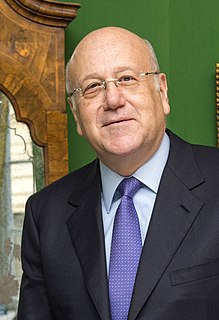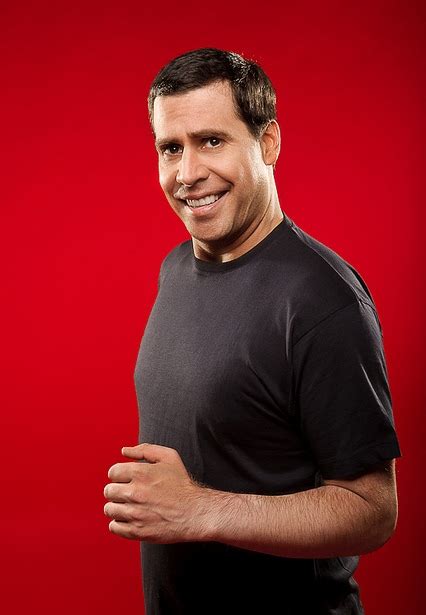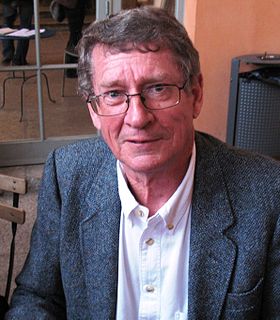A Quote by A. A. Milne
The other day I met a man who didn't know where Tripoli was. Tripoli happened to come into the conversation, and he was evidently at a loss. "Let's see," he said. "Tripoli is just down by the - er - you know. What's the name of that place?" "That's right," I answered, "just opposite, Thingumabob. I could show you in a minute on a map. It's near - what do they call it?" At this moment the train stopped, and I got out and went straight home to look at my atlas.
Related Quotes
The minute you start arming people in these conflict zones, things don't go as expected. We also need to look at precedent before making these decisions. Instead of listening to Muammar Qaddafi's rhetoric, we should look at how he's behaved. The fact is he's been making concessions recently. He gave up his nuclear weapons. He allowed hundreds of Americans to evacuate Tripoli. Did he crack down on his people who revolted? Yes, but that's not so unusual.
I love living in Vermont and I love living in New York. Does my love for Vermont give us the right to rain bombs down on Tripoli? Of course not. There are exceptional qualities about the United States. But it doesn't give us the right to impose our will on other cultures when they often don't want it.
You look at Libya, and you go, "Jesus, why the hell did we do that?" That's beyond stupid. That's so irresponsible and dangerous for our national security and frankly for the national security of Europe because you go and you look at where a lot of these refugees are coming out of, they're coming out of Misrata and Tripoli.
Don LaFontaine passed away. He passed away from a blood clot in the lung. It was unexpected. It just happened. I was just blown away by it. He was like, "Pablo, I've got something in my lungs, I don't know what it is." And I said, "What is it?" And he says, "I don't know, it just keeps hurting." And then he left me a message saying, "I'll come see you when I get out of here." And it never happened.
We also need to look at precedent before making these decisions. Instead of listening to Muammar Qaddafi's rhetoric, we should look at how he's behaved. The fact is he's been making concessions recently. He gave up his nuclear weapons. He allowed hundreds of Americans to evacuate Tripoli. Did he crack down on his people who revolted? Yes, but that's not so unusual. For me, it's always a failure of diplomacy. Our willingness to immediately turn to a military solution is disturbing.
When I see this, you know, 'Crooked Hillary,' or I see the, 'Lock her up,' it's just ridiculous. It is ridiculous. But I just - you know - it is beneath the character of the kind of dialogue we should have. Because we got real serious problems to solve. And look, most of us stopped the name-calling thing about fifth grade.
I met Harrison Ford when I was at Comic Con. I didn't know what to say. He was standing behind these two bodyguards - I think he was going up next for Ender's Game - and I had just come off the panel. I saw him sitting over there and I couldn't believe it, so I just walked over to him. He looked right at me and said, "Are you Michael Madsen's son? You look a lot like your dad. You've got a great look, man. I think you're going to have a good future." I just couldn't believe he said that, and then he walked right onto the panel.
The United States has been fighting African pirates since the early days of the republic - battles so formative that, among other things, they established a long-standing pattern of dealing with foreign policy problems through armed interventions and also inspired the iconic phrase 'the shores of Tripoli' in the Marine Corps hymn.
People don't just show up and lie down in the middle of the street some place out of nothing. Somebody said meet me there, let's get together, and let's do this thing. The interesting thing is that we don't know who all of the leaders of these groups are, but we know that they're out there, and we know a new group of leadership is being created. It shows you that leadership can come from anywhere.
America's a funny place. Every time I've come over it just feels absolutely gigantic and massive. I've always had good shows there, but I just go and come back, feeling like another singer/songwriter in a sea of thousands of singer/songwriters. I don't really know what "breaking it in America" is or means. I just focus on touring day-by-day, and show-by-show, and see where it goes.
I can see it, hear it, feel it, taste it - but I can never be on the inside of it with you. I cannot even be sure whether I really know what it is like. Is it 'like' my own? Or incomparable? Just as I can never know if what you see at any given moment is exactly the same as what I see. We look at a colour. We both call it red. But it is only because we have been taught to call it by that name. There is no guarantee - not ever - that we see it in the same way, that your red is my red.

































